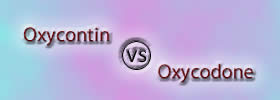Difference between Management and Control
Key Difference: Management is the process or practice of managing. It is the act of coordinating the efforts of people to accomplish certain goals. On the other hand, control is the exercise where one influences , suggests or dictates the behavior.
 According to Dictionary.com, Management is:
According to Dictionary.com, Management is:
- The act or manner of managing; handling, direction, or control.
- Skill in managing; executive ability: great management and tact.
- The person or persons controlling and directing the affairs of a business, institution, etc.: The store is under new management.
- Executives collectively, considered as a class (distinguished from labor).
Management was derived from the Latin word manus, which means hand and from the Italian maneggiare, which means to handle, especially the tools. Management is basically the art of getting things done from people, from beginning to end. From the viewpoint of Henri Fayol (1841–1925), management consists of six functions:
- Forecasting
- Planning
- Organizing
- Commanding
- Coordinating
- Controlling
Managing anything in a good manner and with great enthusiasm is not an easy job for everyone. One needs to be very active and well-spoken, that if he is managing a team, group or company, they should listen to him. Risk management is commonly used in the work place and legal proceedings. The term is used in the companies when it comes to the identification and analysis of problems which may arise out of a particular routine or project.
According to Dictionary.com, Control is:
 To exercise restraint or direction over; dominate; command.
To exercise restraint or direction over; dominate; command.- To hold in check; curb: to control a horse; to control one's emotions.
- To test or verify (a scientific experiment) by a parallel experiment or other standard of comparison.
- To eliminate or prevent the flourishing or spread of: to control a forest fire.
- Obsolete. To check or regulate (transactions), originally by means of a duplicate register.
Control means making decisions. It is all about managerial functions that ensure if all things are going in a right manner or not. It usually involves authority or a board to make decisions about changes, if any. The four basic elements in a control system are:
- The characteristic or condition to be controlled
- The censor
- The comparator
- The activator
Control is important in any business or organization because it helps to check the errors and to take the correct action against the problems. Whereas, control is also a foreseeing action used to predict the company and get the work done accordingly.
Image Courtesy: sudiptochatterjee.blogspot.in, 2k-consultants.com









Comments
tom cheng
Wed, 01/10/2018 - 05:44
Add new comment